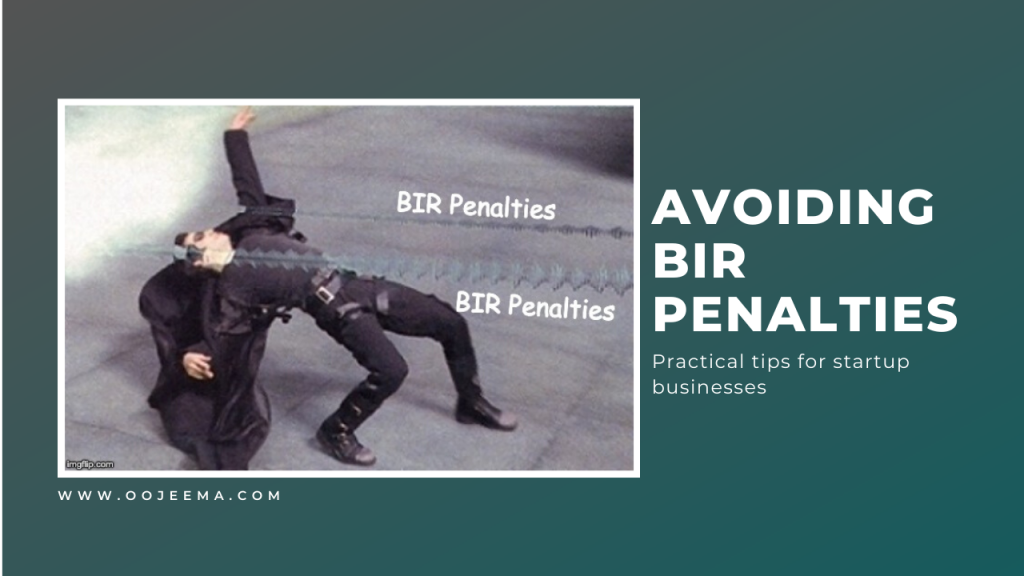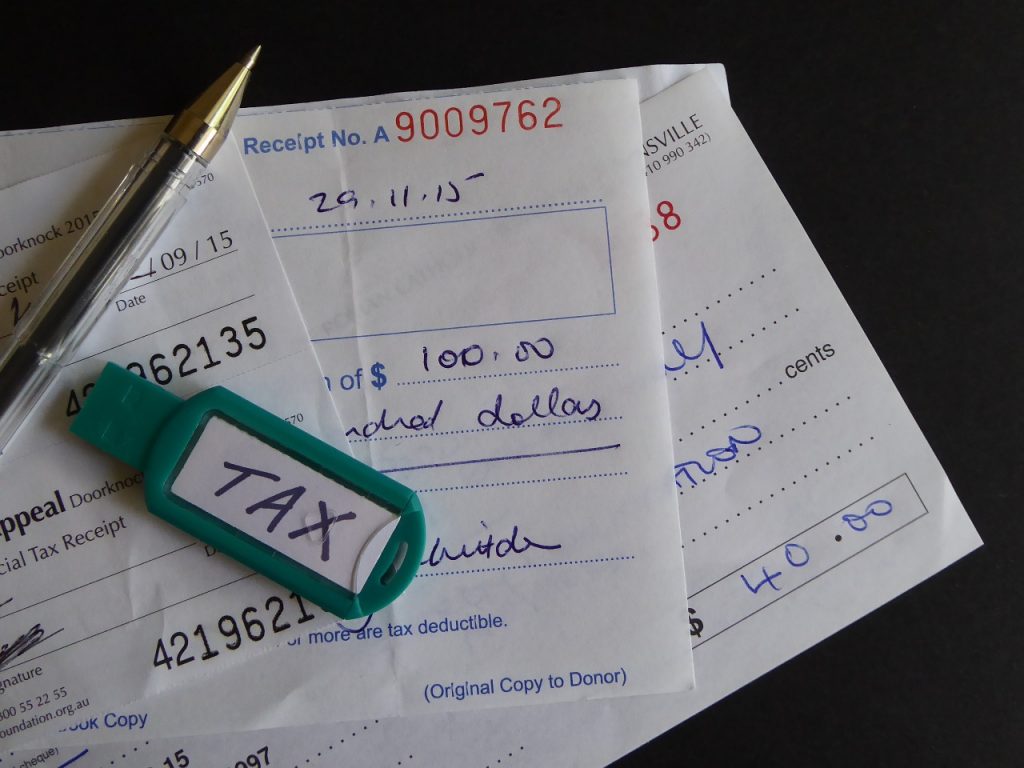

You want to start a business, and you want to avoid being penalized. We get it. But for you to actually dodge it, you have to follow these tips to a T.
These tips are from tax experts Mon Abrea, former BIR examiner, and Mark Anthony Pojol, a tax consultant. We also added information from the Bureau of Internal Revenue’s regulations (RR) and other government agencies’ policies.

We’ve mentioned this before in a previous article. You should always seek professional advice. It’s either you hire one full-time or get a retainer.
This is particularly applicable if you don’t have financial know-how. But even if you do, you’ll surely be occupied handling other areas of your business. In this case, it’s highly possible for you to miss tax deadlines, which correspond to different penalties. Plus, accountants can provide you with financial insights you cannot get somewhere else.
Financial software like Oojeema accounting software can help automate some of your tasks, but just like other technology, it still needs human input.
As Mr. Pojol puts it, stay away from “DIY accounting.”

What does a business plan have to do with penalties? Here’s an explanation from Mr. Pojol:
“Minsan kasi natutuwa tayo dun sa ideas. Meron tayong idea…kumikita, pero hindi natin napaplano. Wala tayong projections kung within the year ba ma-hi-hit natin yung ganitong amount of income…tatandaan natin na kung magrerehistro tayo sa BIR, except for yung industry natin may specific na regulation na ni-re-require na ‘ito subject sa percentage; ito subject sa VAT’, kung ang expected earning natin for a year eh hindi naman lalampas ng three (3) million, pwede po tayo mag-opt na magrehistro as non-VAT.
Pero yun nga po kasi…minsan kasi…ang complexities nyan pagdating dun sa pag-cha-change ng registration from VAT to non-VAT…meron pong three-year period kung saan hindi po natin pwedeng palitan ang registration to non-VAT…so dapat pinagaaralan ng mabuti.
OK. So what does being VAT or non-VAT registered taxpayer (TP) have to do with penalties?
Mr. Abrea mentions in one of his articles the different taxes for each type of TP. These taxes are, but not limited to, creditable withholding tax, input and output taxes, and income tax.
“Knowing which taxes you have to pay is key to avoiding expensive fines and penalties,” he explains.

This is not uncommon. You’ve probably met at least one trader who says, “saka ko na irehistro pag kumikita na.” Unfortunately, this mindset has penalties.
According to Annex-A or the Revised Schedule of Compromise Penalty, failure to register has a fine ranging from PhP5,000 to PhP20,000. In addition, you may be imprisoned for 6-24 months.
Mr. Pojol clarifies that registration of the business does not end at BIR. You should also register your business name with the Department of Trade and Industry (DTI) if you’re a sole proprietor, Securities and Exchange Commission (SEC) if you’re putting up a partnership or corporation, Philippine Economic Zone Authority (PEZA) / Bureau of Immigration (BOI) if your business is export-oriented, and the local government unit (LGU).
If you will have employees on board, you should also register with other government agencies such as the Social Security System (SSS), PhilHealth, and Pag-ibig.
Failure to register with these agencies have penalties as well. SSS, for example, has a penalty ranging from PhP5,000-PhP20,000 for failure to register. On top of that, you may be imprisoned for six years and one day up to 12 years. 1

After completing your registration, the Bureau requires the display of the following:
Non-compliance has up to PhP1,000 penalty for each violation or imprisonment of no more than six months. It can also be both. For the sticker and decal, it’s PhP1,000 per unit.

Annex-A shows that the BIR has a hefty penalty for non-issuance of receipt whether it’s done deliberately or not.
For failure to issue receipts, the fine for the first offense is PhP10,000 and PhP20,000 for the second offense. Subsequent offenses may reach up to PhP50,000 plus imprisonment of not less than four years.
For refusal to issue receipts, the penalty is even bigger. It’s PhP25,000 for the first offense and PhP50,000 for the second one.
If you issued a receipt but the amount or information thereof does not reflect the correct one, the penalty ranges from PhP5,000 to PhP50,000. Some of which do not qualify for a compromise.

Did you know issuing receipts or invoices you buy from bookstores may be penalized too? Or even if you issue an official receipt, but it’s not registered, you may still pay a hefty price.
The BIR penalty for unregistered receipts or invoices starts at PhP20,000 and PhP50,000 for the first and second offenses, respectively. Beyond that, you may be imprisoned for up to four years.
If you don’t have the budget for printing your official receipt, you may buy a booklet from the Bureau, which you can use temporarily.
For more information on BIR penalties, you may read Annex-A. You may also listen to this podcast from Mr. Pojol:
Note: If there are discrepancies among this article, the cited sources, and the revenue regulations, the third will supersede.